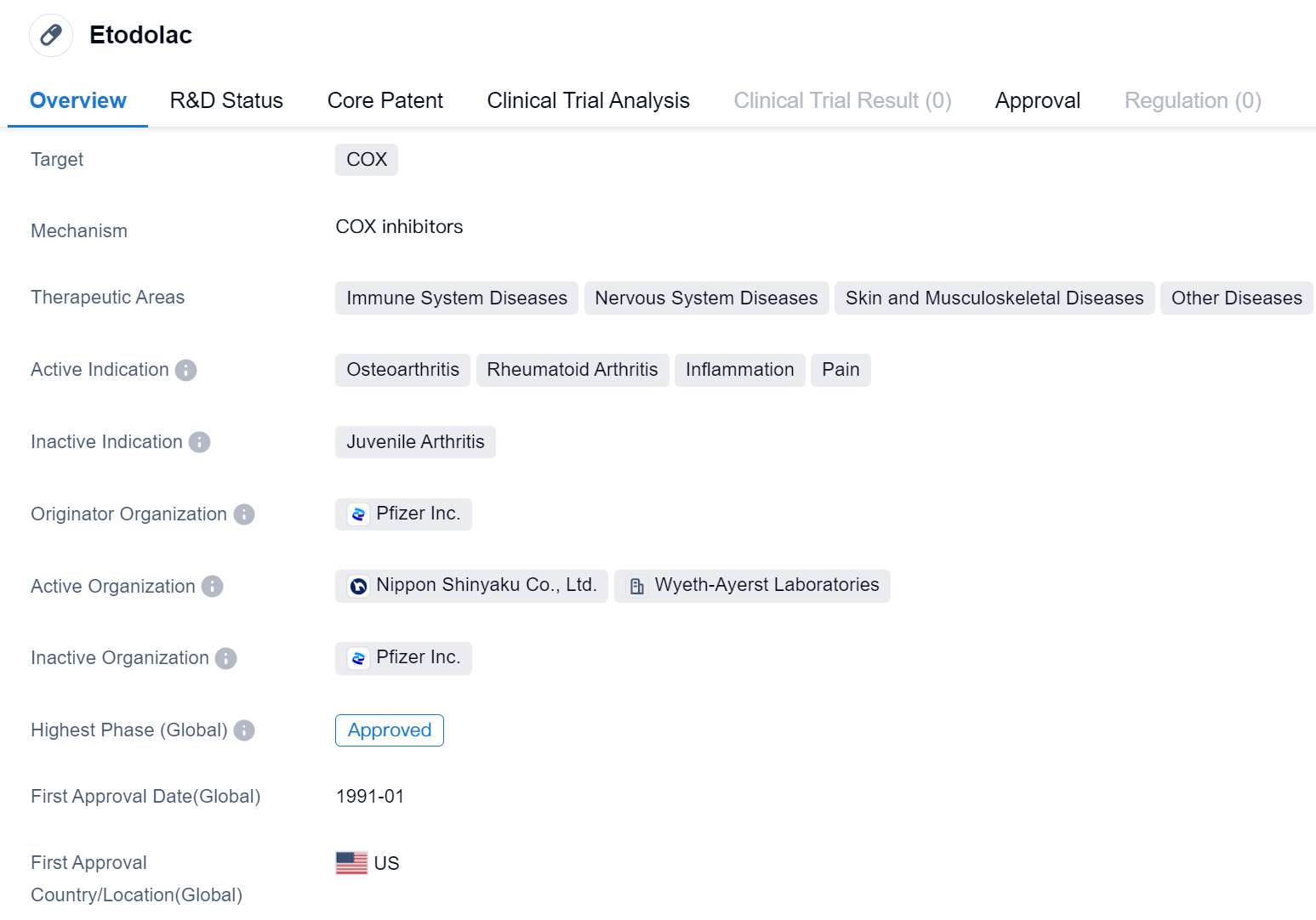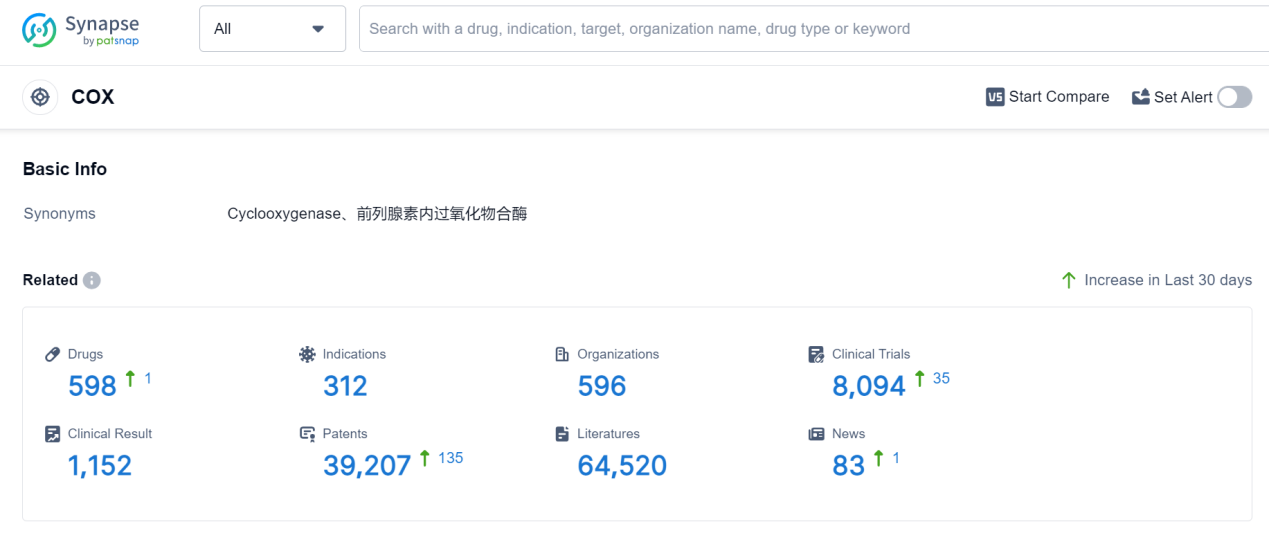Etodolac Unveiled: A Detailed Overview of its Revolutionary R&D Breakthroughs
Etodolac's R&D Progress
Etodolac is a small molecule drug that belongs to the class of nonsteroidal anti-inflammatory drugs (NSAIDs). It primarily targets the enzyme cyclooxygenase (COX), which plays a crucial role in the production of prostaglandins, substances that are involved in inflammation and pain signaling.
The drug has been approved for use in various therapeutic areas, including immune system diseases, nervous system diseases, skin and musculoskeletal diseases, and other diseases. Specifically, it has shown efficacy in treating conditions such as osteoarthritis, rheumatoid arthritis, inflammation, and pain.
Etodolac was originally developed by Pfizer Inc., a renowned pharmaceutical company. It received its first approval in the United States in January 1991, making it available for use in patients in that country. Since then, it has also obtained approvals in other countries globally.
The highest R&D phase of this drug is approved. This suggests that the drug has undergone rigorous testing and met the necessary regulatory requirements for market authorization.
👇Please click on the image below to directly access the latest data (R&D Status | Core Patent | Clinical Trial | Approval status in Global countries) of this drug.
Mechanism of Action for Etodolac: COX inhibitors
COX inhibitors, also known as cyclooxygenase inhibitors, are a class of drugs that work by inhibiting the activity of the enzyme cyclooxygenase. Cyclooxygenase is responsible for the production of prostaglandins, which are hormone-like substances involved in inflammation, pain, and fever. By inhibiting COX, these drugs reduce the production of prostaglandins, leading to anti-inflammatory, analgesic (pain-relieving), and antipyretic (fever-reducing) effects.
From a biomedical perspective, COX inhibitors are commonly used in the treatment of various conditions such as arthritis, menstrual cramps, and acute pain. They can help alleviate pain, reduce inflammation, and improve overall comfort. However, it's important to note that long-term use of COX inhibitors may have side effects on the gastrointestinal system and cardiovascular system, so they should be used under medical supervision and guidance.
Drug Target R&D Trends for Etodolac
COX, or cyclooxygenase, is an enzyme that plays a crucial role in the human body's inflammatory response. It is responsible for the production of prostaglandins, which are hormone-like substances involved in various physiological processes. COX exists in two isoforms, COX-1 and COX-2. COX-1 is constitutively expressed and involved in maintaining normal bodily functions, such as protecting the stomach lining and regulating blood clotting. On the other hand, COX-2 is induced during inflammation and is primarily responsible for the production of prostaglandins that cause pain, fever, and swelling. Understanding the role of COX has led to the development of drugs called COX inhibitors, which are used to manage pain, inflammation, and other related conditions.
According to Patsnap Synapse, as of 6 Sep 2023, there are a total of 598 COX drugs worldwide, from 596 organizations, covering 312 indications, and conducting 8094 clinical trials.
👇Please click on the picture link below for free registration or log in directly if you have a freemium account, you can browse the latest research progress on drugs, indications, organizations, clinical trials, clinical results, and drug patents related to this target
Conclusion
Overall, Etodolac is a small molecule drug developed by Pfizer Inc. that targets the COX enzyme. It has been approved for use in various therapeutic areas, including immune system diseases, nervous system diseases, skin and musculoskeletal diseases, and other diseases. Its active indications include osteoarthritis, rheumatoid arthritis, inflammation, and pain. With its global approvals, Etodolac has become a valuable option for patients with these conditions.





